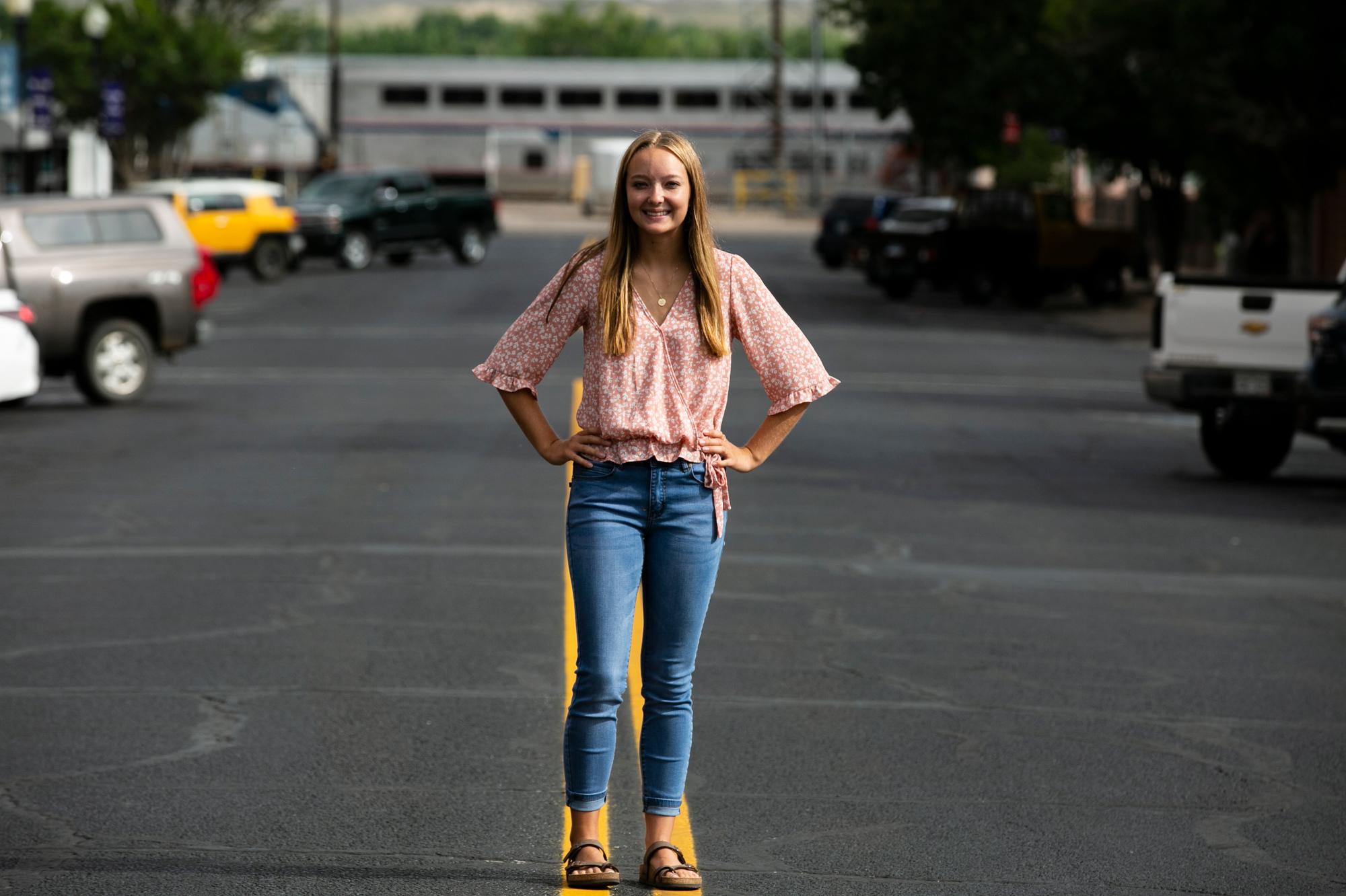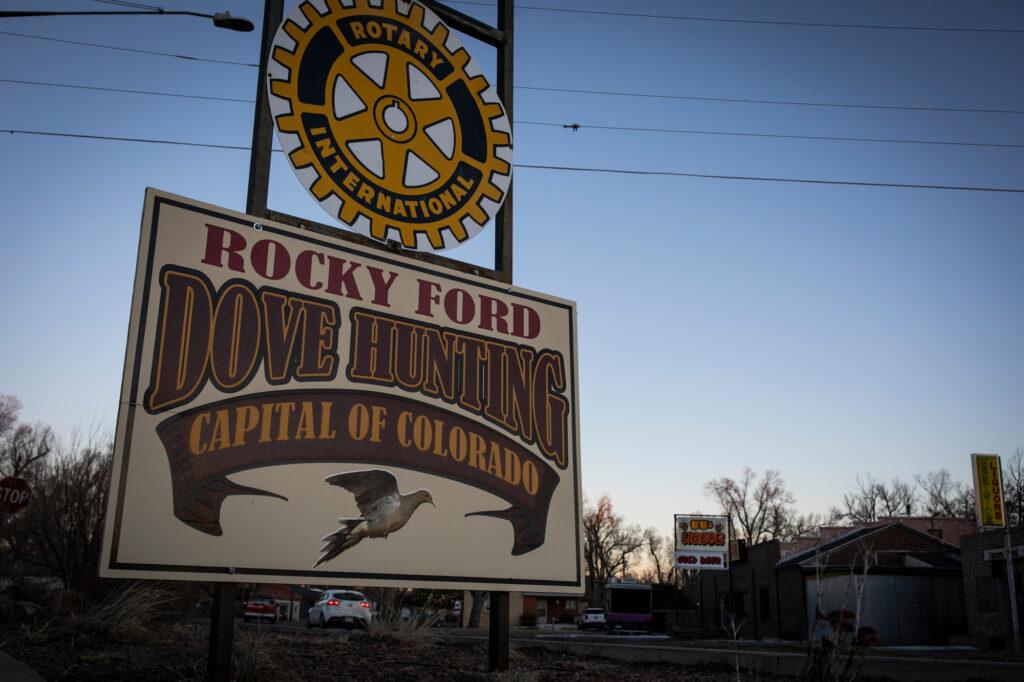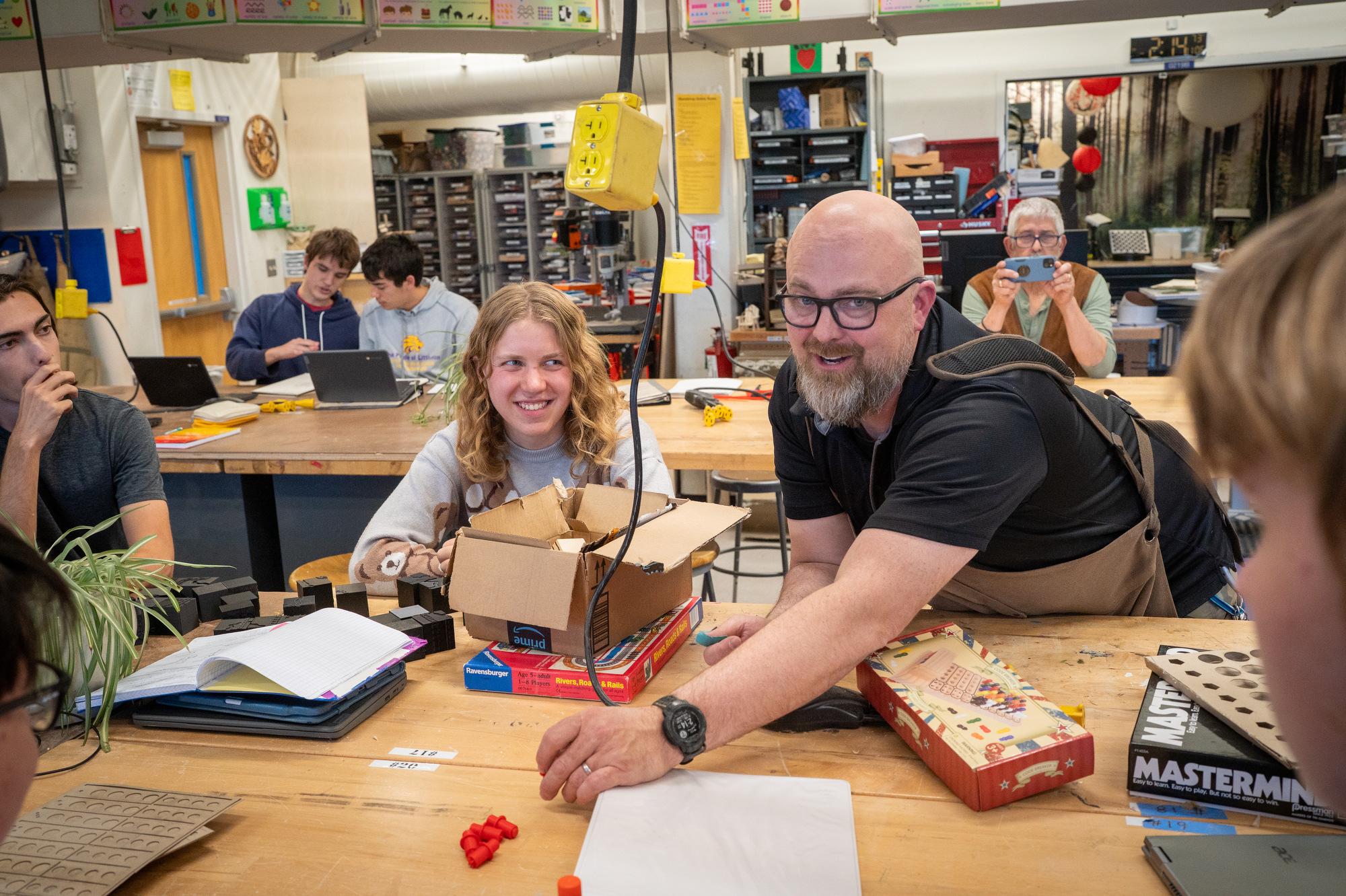
When she was young(er), Jaydon Rice pondered a career in zoology, a path that would, if not potentially take her around the world, certainly require her to move away from her native Rocky Ford.
"I was one of those kids that had big ambitions and big plans," she said.
There's abundant evidence of that. In elementary school, Rice made keychains and sold candies before moving on to jewelry and baked goods in middle school. In high school, she bought used, dilapidated furniture and home fixtures and repaired and refinished them for resale. At one point, Rice started a photography business, and she's still snapping portraits today in her spare time.
But life — more specifically, a series of health issues — interrupted those plans.
"I've had a lot of different health scenarios pop up over the last decade, and there's always a lingering possibility that it will happen again," the 20-year-old said. "I kind of realized, you know, it's better to stay where I have a very wide support system because I have a lot of family here in the valley."
That decision has not only benefitted Rice but countless others in the area as well. A programs manager for the Southeast Colorado Small Business Development Center, Rice now helps others find their passions — like the Front Range transplant who's painting original artwork on tiles, and a man who was forced to stop working after being disabled during a riot at a local prison. Realizing his late wife's dream, he opened a horse motel, where rodeo workers and show jumpers could have a place to board their animals while passing through the area.
"I found a career that has really been very fulfilling for me. And I don't see myself ever leaving," Rice said.
Shaelie Schmidt feels the same way. While she's applying to colleges across the state, the senior at La Junta High School says the University of Colorado Colorado Springs currently tops her list because it's only about two hours from home.
"After I'm done (with school), this is where I want to be; it's such a special place to live," she said.
And like Rice, Schmidt is also making her mark in the community. A project that began in a social studies class last year is gathering momentum — the 17-year-old co-writing a grant proposal to bring bike share to La Junta. Approved by the Colorado Department of Transportation in May, soon 26 bikes will be available.
" I know that it will really help the community and people who don’t have modes of transportation," Schmidt said. "We thought this would be really good for (nearby Otero Junior College). They have a lot of international students that could use the bikes and don’t have vehicles."
Making A House For Home
Rice and Schmidt's love for the region brings a smile to Julie Worley's face.
As the director of the SE Colorado Youth Entrepreneurship Project, Worley runs an E-Fair which brings together fifth- to 12th-grade students from six counties in the region, providing them with an opportunity to showcase potential businesses.
While some of the students get instant gratification when an idea takes off, Worley is much more interested in the long game — as showing young people in the area that they don't have to move away to lead happy, successful lives.
"I have always felt that if we didn't do something, our little rural towns were going to dry up and blow away because our youth were leaving — you know, they graduate high school and they leave," she said. "I thought that if kids could realize, they can start a business and maybe go off to college and get a four-year degree, but then come home and maybe run a business in their home community or somewhere around in these six counties and live and work and raise their families."
A few years ago, Worley said, her project surveyed more than 1,000 11th-graders in the region, with one question gauging interest in remaining in the area to live and work. While the 43 percent of the respondents who said they would choose to do just that wasn't a majority, it was more than twice what Worley expected, leading her to think she was on to something.
"Now we know that young people usually want to stay in their home communities," she said. "They want their kids to go to school in schools like they attended. They want to live in a small town where they have family connections and neighbor connections."
Desiring that home sweet home, fairy tale happy ending is one thing, but there are obstacles to making it actually happen. For one thing, there's the question of where the young people will live. Worley says the average home in the area is more than 50 years old and likely already occupied by established residents, meaning people who might want to move into the area, or those looking to follow in their parents' footsteps and buy a place to raise a family of their own, are often shut out of the market.
"We have had more people trying to get back into the area in the pandemic year; they're working from home now and if they can work from home, why not move back?" said Stephanie Gonzales, executive director of Southeast Colorado Enterprise Development, Inc. "My sister works in health care in Denver, but actually lives across the street from me in Grenada (in the southeast corner of Colorado)."
Gonzales is part of a project that will bring 70 attainable houses to the six-county (Baca, Best, Crowley, Kiowa, Otero, and Prowers) region, but for now, her sister is one of the lucky ones. A recent economic development plan done by her office, covering the six counties in the region showed that one of the greatest issues facing the local population is the lack of housing.
"There's not that much availability here. A house goes on the market, it's gone within a week," Gonzales said. " And whether the condition of it is that great or not it's gone because people are figuring, 'Well, I better jump on this because I can fix it up and at least make it livable to where, you know, I can get my family into it.'"

Bucking A Trend
According to figures from the 2020 census, Southeast Colorado is one of the few regions in the state that isn't seeing the population growing.
While the state as a whole saw an increase of 14.5 percent, in Otero County, for example, there was a decline of 2.9 percent — in Bent County, the drop was more than 14 percent.
Gonzales argues that with some people hesitant to fill out the form online — and census takers unable to knock on doors to ensure participation because of the pandemic — there's something amiss in the count.
"I applaud their effort; however, nobody knows our area like us," she said. "I see the activity that's going on around here — just people moving back into the area and the interest that we've had ... I just know I look at those numbers and I don't agree with them."
But there's evidence to the contrary. Rice says last month her office sponsored a career fair that featured 19 local businesses with more than 100 job openings, but only 35 people walked through the doors.
"If you had a business and were a Mom and Pop, or one-man shop," adds Worley, "You'd be in there from the time you opened until the time it closed because there's just nobody to hire."
Indeed, in La Junta, a local breakfast staple, The Copper Kitchen, recently saw its shorthanded and overworked staff beg the owners for some time off. Without a full roster, the restaurant is closing this week to give the employees on hand a much-needed break.
Old Soul
There's never a labor shortage in Rice's family; on her mother's side alone, there are about 50 people, most of them just a car's hop away. And, unlike other young people, that provided an in with housing — the clan purchased a property with a pair of old farmhouses. Rice says she and her husband live in the smaller, older of the two.
"It was built in 1901 and converted later into a house," she said. "There's no air conditioning, there's no central heat. There are some holes that just can't be patched and I had to chase a snake out this morning.
"But there are many individuals that can't even find a one-bedroom apartment. So with all its flaws and charisma, I know I'm very fortunate."
As it turns out, it's the people seeking her assistance who may be the lucky ones — even if they're momentarily taken aback by getting business advice from a 20-year-old.
"I've always been an old soul, and so generally people don't have an issue with it," Rice said. "They know that I know what I'm talking about — I'm not going to lead them down any road that I personally have not walked or have experience in.
"And so that's where you see, I think, a little bit more of the rural culture — you know, letters behind your name don't mean as much around here as being genuine and not only just genuine, but I also have lived here my whole life. So sometimes being a transplant with a Ph.D. has less merit than being a born and raised Southeast Colorado."








